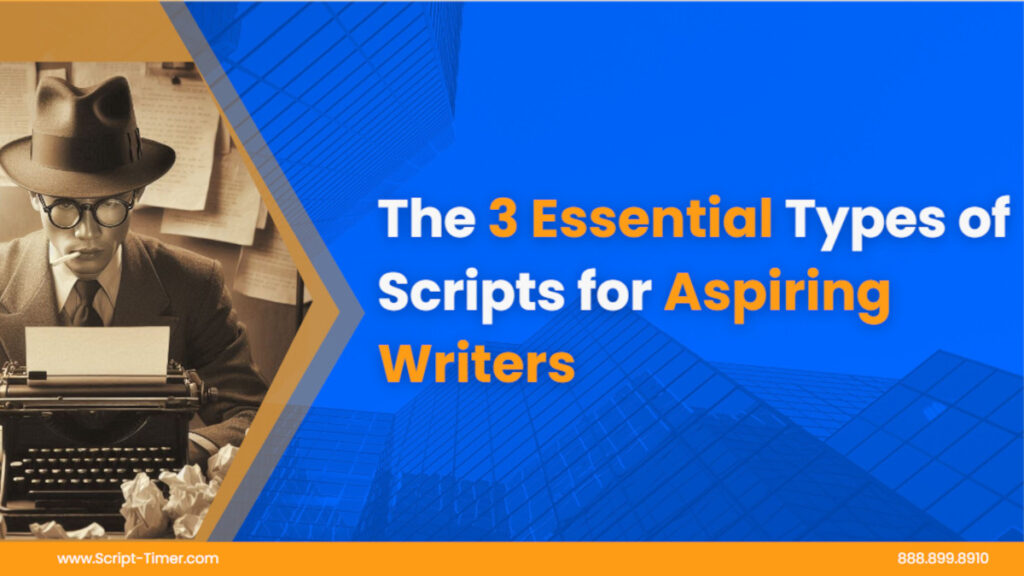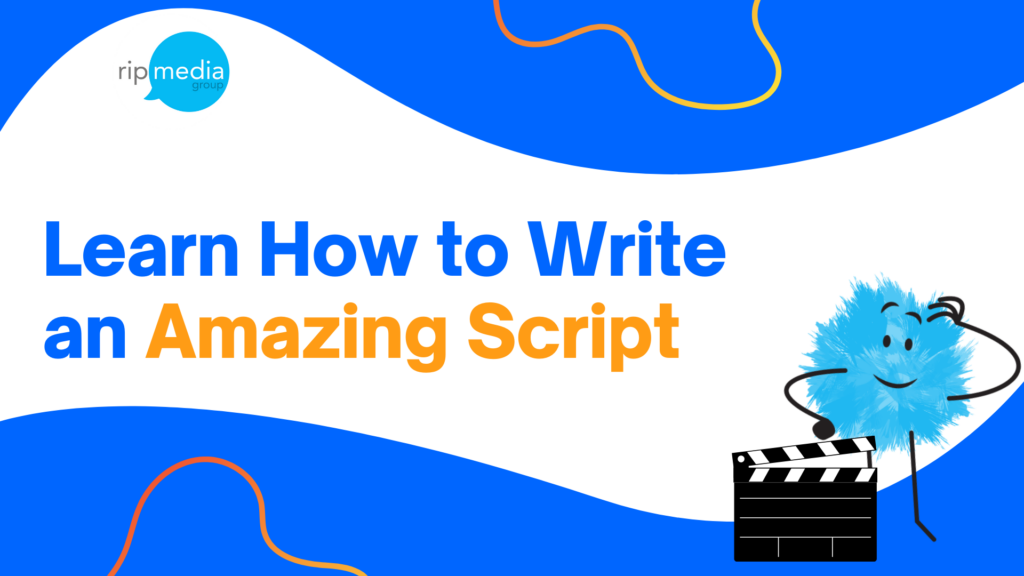The world of script writing is vast and full of variation, so it’s important to know the best types of scripts to incorporate when we’re writing a script. But for aspiring writers, navigating this vast landscape is often daunting, it’s difficult to know where to begin or what type of script you should use first.
Don’t worry! In this blog we’ll see the best 3 types of scripts for beginner writers, we’ll also explore their own strengths, the elements that make them tick, and most importantly how to integrate these types of scripts to improve your scriptwriting skills.
-
Feature Films: The Grand Tapestry
The feature film is without a doubt the pinnacle of cinematic storytelling, this format has been used in innumerable classics, and here’s how you can use it to create intricating narratives, developing rich characters, and create an overall great experience for audiences.
Strengths: There are many types of scripts, but this format allows for deeper exploration of themes, complex character arcs, and impactful storylines, and since its runtime is typically around 90-120 minutes it allows room for character growth, intricate plot twists, and satisfying resolutions.
Structure: This type of films generally follow a three-act structure:
- Act 1: This is the set up, where the characters are introduced, as well as their world and the main conflict of the film.
- Act 2: Here’s where the confrontation takes place, the protagonist is challenged, and develops the conflict further.
- Act 3: After the conflict comes the resolution, after the protagonist overcomes the main conflict everything comes to a good ending.
How Writers Can Use It: This format is perfect for writers who have ambitious projects, and well-developed stories, so if your story us complex and ambitious and you don’t know what format to use out of all the types of scripts, give this format a try.
Tips:
- Focus On Structure: A well developed three-act structure is crucial for keeping your audience engaged
- Develop Compelling Characters: Focus on creating a deep personality for your characters, make them relatable, and give them clear motivations.
- Pace Yourself: This type of format requires masterful control over pacing because it ensures your story unfolds at a satisfying rhythm.
-
Short Films: The Compact Powerhouse
Many people underestimate the power of short films, don’t be one of them, these scripts use a condensed time frame that can pack a powerful punch and leave a lasting impression on viewers.
Strengths: Short films’ main strength is that they focus on a single strong idea or emotion, they also can be experimental, pushing boundaries and exploring innovative storytelling techniques, this is because their runtime is usually between 5-30 minutes and this demands conciseness and a strong focus on the core narrative.
Structure:Some short films also follow the three-act structure, but they more often show a more minimalistic approach. Short films often focus on just one powerful scene that will leave a lasting impact on the audience.
How Writers Can Use It: Short films can be used as a fantastic training ground for aspiring screenwriters because their short length allows you to experiment, learn the fundamentals, ravine your voice, and they also require of less budget so that’s great if you’re new to this.
Tips:
- Hook Them Fast: In short films it is really important to grab the audience’s attention in the first minutes, ideally as fast as possible.
- Focus on a Single Moment: Include a pivotal scene, a character revelation, or even a specific motion and then explore with depth.
- Leave Them Wanting More: End with a strong and impactful scene, that leaves the audience thinking about the story long after the credits roll.
-
Documentaries: Unveiling The Truth
Documentaries out of all the types of scripts are the best at telling real-life stories that will impact audiences, exploring with depth historical events, social issues, or inspiring people.
Strengths: The main strength of documentaries is that they allow you to leave lasting impressions in your audience by telling real stories, so with the power of truth you can educate, inspire, or even spark interesting conversations about the world we live in.
Structure: While documentaries can also employ a narrative arc, their structure is often much more flexible because they can be chronological, thematic, and sometimes a combination of both.
How Writers Can Use It: To write a documentary script you need of strong research and storytelling techniques, so if you’re passionate about a particular subject or social issue, consider creating a documentary script to share all your knowledge and engage your audience at the same time.
Tips:
- Research Meticulously: Make sure your facts are always accurate and your sources are credible, check as many times as possible to ensure all the information you share is valuable.
- Craft a Compelling Narrative: Even factual stories need a strong narrative arc to keep viewers engaged at all times.
- Find a Unique Voice: Incorporate your own unique style and perspective into your documentary to ensure it stands out.
Summarizing, there are many different types of scripts, you can experiment with any format you want, but the 3 formats we covered in this blog, have advantages that can be beneficial for aspiring screenwriters, and it will be more easy for you to improve and learn if you incorporate these types of scripts into your writings, and if you’re really serious about creating compelling scripts, you can sign up to Script Timer to unlock all the different script tools you need to ensure a compelling story and engage any audience!





